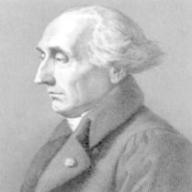electron-volt
2012-03-01 12:37 am
Sometimes we deal with something concerning energy of electrons. There is a common practice using a unit 'electron-volt' expressing the small amount of energy acquired by an electron, e.g. 13.6eV represents the ionization potential of a hydrogen. Having noticed that this unit results from 'energy divided by charge', i.e.E/Q (where E is the energy and Q is the charge of an electron), I would like to ask: why does the unit 'electron-volt' represent an energy but not a potential?
回答 (1)
2012-03-01 1:27 am
✔ 最佳答案
Electron volt (eV) is, by definition, the energy acquired by an electron when it falls through a potential difference of 1 volt.Because energy E = charge x potnetial difference
hence, E = e x 1 = e J or 1.6x10^-19 J
Thus 1 eV = 1.6x10^-19 J
Be aware that the figure 1.6x10^-19 eV/J is now becoming a "conversion factor", it converts eV to Joule or vice versa. Even if you are dealing with other charged particles, e.g. proton or alpha particles, the same "conversion factor" still applies.
2012-02-29 21:02:40 補充:
Just to correct a typing mistake.
The unit for the "conversion factor" should be J/eV, i.e. 1.6x10^-19 J/eV. Notice that the unit is NO LONGER in "Coulomb". Thus E/Q is not potential now.
收錄日期: 2021-04-29 17:45:46
原文連結 [永久失效]:
https://hk.answers.yahoo.com/question/index?qid=20120229000051KK00366

